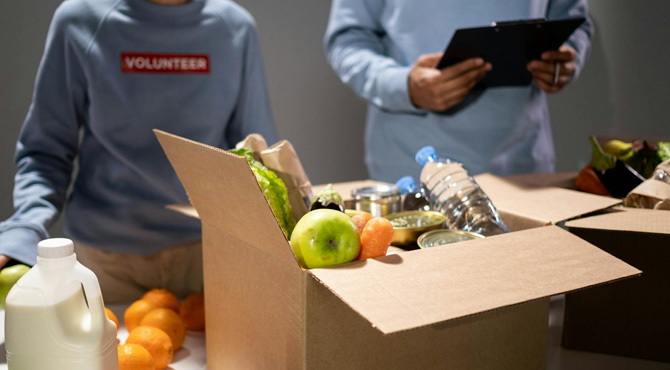For 17 years, our marriage had weathered its share of ups and downs, but one ongoing issue continued to gnaw at me: my husband’s unwavering frugality, despite our comfortable income. With our household earnings comfortably exceeding $200k annually, I couldn’t fathom why he insisted on frequenting food banks.
It wasn’t that I lacked compassion for those in need or the importance of community support. Quite the opposite — I understood and respected the role of food banks in helping families during tough times. What troubled me was my husband’s deliberate choice to utilize resources meant for the less fortunate, even though our fridge was always well-stocked with fresh groceries purchased from upscale markets.
{banner_11}
Today marked another episode in this ongoing saga. I returned home to find our fridge overflowing with fresh produce. Confused and somewhat frustrated, I confronted my husband. With a hint of guilt in his eyes, he confessed to making another trip to a food bank after spotting a Facebook post about surplus donations.
“People were already commenting on how good the produce was and asking if any was left,” I pointed out, showing him the thread on social media. “They needed it more than us.”
He shrugged nonchalantly, brushing off my concerns with a dismissive wave. “They should have gone earlier,” he retorted, a hint of defensiveness creeping into his voice.
I stood there, feeling a mix of disbelief and exasperation. It wasn’t just about the food; it was about the principle. My attempts to reason with him about the impact of his actions on others had fallen on deaf ears time and again. It was clear that a new approach was needed to drive home the gravity of the situation.
{banner_33}
That night, after a lot of deliberation and internal conflict, I made a decision. I reached out to a local food bank and spoke to the coordinator. I explained our situation and offered to volunteer for a few hours the following day.
The next morning, armed with determination and a sense of purpose, I arrived at the food bank. I spent the morning sorting through donations, organizing shelves, and witnessing firsthand the sheer volume of people in genuine need of assistance. Families, elderly individuals, and young children all lined up, grateful for the modest provisions that would sustain them for the week.
As I worked, I couldn’t shake the thought of my husband and his misguided actions. This experience wasn’t just about volunteering; it was about empathy and understanding. It was about realizing the privilege we held and the responsibility that came with it.
When I returned home later that day, my husband greeted me with a curious expression. I took a deep breath, choosing my words carefully as I recounted my experience at the food bank. I spoke about the families I had met, the stories I had heard, and the gratitude that filled the air despite the hardships.
{banner_55}
“I thought about what you said,” I began quietly. “And I realized that our actions, no matter how small, can make a big difference to someone in need.”
His expression softened as he listened, his eyes reflecting a mixture of remorse and understanding. For the first time in a long while, I felt a glimmer of hope that maybe, just maybe, this experience had opened his eyes to a new perspective. From that day forward, my husband’s visits to food banks ceased. Instead, he made a conscious effort to contribute to local charities and support community initiatives in more meaningful ways. Our fridge remained well-stocked, not with surplus from food banks, but with groceries purchased with a newfound appreciation for our blessings and a commitment to making a positive impact in our community. In teaching him a lesson, I had inadvertently taught myself one too — about the power of empathy, the importance of responsibility, and the profound impact of even the smallest acts of kindness.
